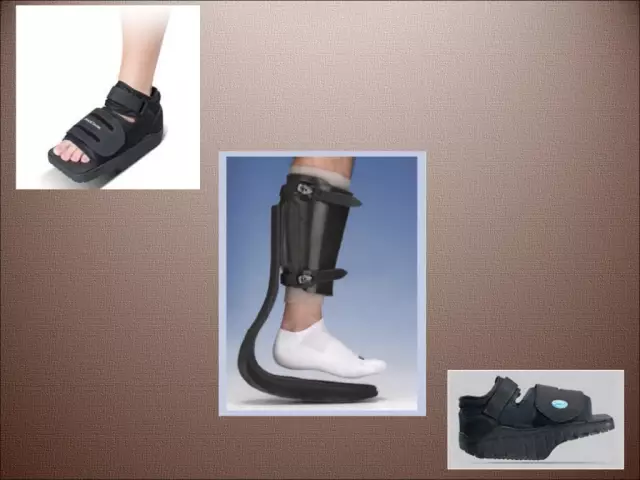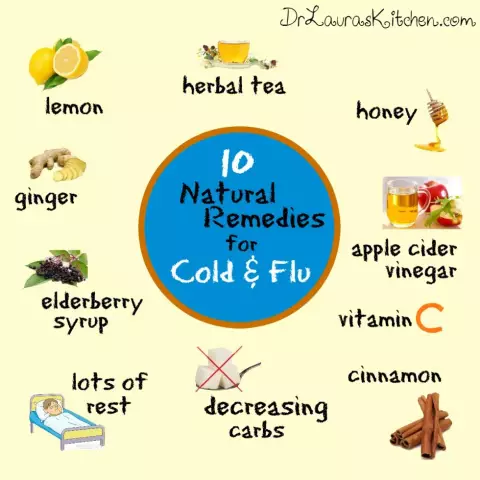- Author Rachel Wainwright [email protected].
- Public 2023-12-15 07:39.
- Last modified 2025-11-02 20:14.
12 popular myths about helminthiasis
Helminthiasis is one of the most common diseases. According to statistics, every third inhabitant of the planet is infected with some kind of parasitic worm. Most experts consider even these data to be underestimated: some uninvited "roommates" do not cause serious troubles to their carriers, and patients simply do not go to doctors. The situation is aggravated by the fact that people know surprisingly little about the specifics of such ailments. For many, the presence of worms is strongly associated with childhood or a marginal lifestyle. Unfortunately, this is not so: anyone can get sick with helminthiasis. Therefore, it is extremely important to dispel the most tenacious and dangerous misconceptions associated with pathologies of this kind.
Those who often wash their hands are not threatened with helminthiasis
The love of cleanliness instilled from an early age is undoubtedly beautiful. It is really good for health and to a certain extent protects a person from infections and helminthic invasions. However, constant hand washing does not guarantee complete protection against helminthiasis. Parasitic worms and their eggs can enter the body in another way. You can get infected:
- by eating poorly washed raw vegetables or fruits. The most dangerous in this sense are herbs (dill, parsley), leafy vegetables, soft berries (strawberries, raspberries, etc.);
- eating in public catering establishments. The hygienic requirements for the cooking process in them are very strict, but it does not follow from this that they are never violated. For example, there is no guarantee that the fresh juice ordered in a cafe was squeezed out of well-washed fruits, that the restaurant chef did not accidentally use the same board for cutting salad vegetables that is intended for raw meat;
- using the products of fast food establishments. Street vendors do not always comply with hygiene standards. Products on these counters may be available to flies that carry helminth eggs on their feet;
- swimming in an open reservoir. It is almost impossible to avoid getting water in the mouth, and parasites can enter the digestive tract with it. However, swimming in a public pool is also unsafe, because no one requires help from helminthologists from its visitors.
Travelers visiting tropical countries often bring worms from vacation, which are common in their places of temporary stay. The diagnosis of such diseases, as a rule, is associated with great difficulties, since not all domestic doctors are well aware of the manifestations of exotic helminthiasis.

Source: depositphotos.com
A negative test result for worm eggs guarantees the absence of helminthiasis
More than 150 types of intestinal parasites are known. About 20 of them are common in our country. The standard analysis of feces gives results for 2-3 types of helminths, but even this result cannot be considered reliable, because in order to accurately determine the presence of eggs, the test material must be warm, which is possible only when the patient is admitted to the hospital.
More reliable information is provided by a blood test for antibody titers, but such a study is not cheap, and it is not possible to do it for antibodies to all known parasites.

Source: depositphotos.com
Treatment of helminthiasis begins with fortification of the body
Improving the body should begin with cleaning it from parasites. Otherwise, the vitamins that the patient will take will go not so much to him as to his unpleasant "roommates".
When the worms are expelled, taking vitamins is a reasonable and obvious way to stabilize metabolism, raise vitality and strengthen the defenses that people who have suffered from an illness are in dire need.

Source: depositphotos.com
Infection with worms always causes pale skin and thinness
The appearance of painful pallor and weight loss accompany helminthiasis often, but not in all cases. The likelihood of a change in appearance when infected with parasitic worms depends on the characteristics of the patient's body, the type of worms, the degree and duration of the invasion, and other factors. At the same time, thinness and pallor can be symptoms of other pathologies. Therefore, it is impossible to judge whether a person has helminthiasis only by external signs.

Source: depositphotos.com
With helminthiasis, the stomach usually hurts
Unpleasant sensations in the stomach or intestines are far from a 100% sign of the presence of helminthic invasion. Similar symptoms are characteristic of many pathologies. It is not for nothing that people infected with helminths are sometimes mistakenly diagnosed with lesions of the digestive tract.
Helminthiasis can be asymptomatic or manifest itself as headaches, coughs, persistent colds, fatigue, irritability, skin rashes and other signs of general intoxication of the body.

Source: depositphotos.com
Infected with helminths grinds his teeth in his sleep
This is a very common, but not always correct, opinion. The fact is that convulsive contraction of the jaws during sleep indicates that a person suffers from increased nervous excitability. This can be the result of a number of pathologies, including intoxication with the waste products of parasitic worms.
Teeth grinding in sleep can be considered a symptom of helminthiasis only when it is combined with other signs of neurotoxic damage, as well as with positive clinical trial results.

Source: depositphotos.com
Only children suffer from helminthiasis
Children are exposed to invasions more often than adults. This is mainly due to the fact that kids, exploring the world, tend to taste everything. Close interaction of children in children's groups plays a significant role in the infection rate. It turns out that for them the risk factors for helminthic invasion are their mobility, curiosity and sociability.
The likelihood of helminthiasis in adults is also quite high, especially if they lead an active life, work a lot and cannot always carefully monitor the quality of food consumed.

Source: depositphotos.com
You cannot become infected with worms from products from your garden
This is an intrusive and extremely harmful delusion. In fact, a summer resident who is fond of gardening is able to grow a crop without using harmful "chemicals", but he cannot expel parasitic worms from the beds. Not only dogs and cats, but also rodents (rats, house mice, voles, moles) are constantly running around the site. All of them successfully transfer helminths and their eggs. In addition, many parasites also live in the water that plants are watered with.
Everyone knows about this, however, unfortunately, the correct conclusions are rarely drawn. Under the pretext of the purity of the crops grown with their own hands, children are allowed to eat unwashed berries and vegetables directly from the beds, and adults themselves often taste the fruits and vegetables offered in the markets. This behavior is unreasonable and dangerous.

Source: depositphotos.com
Domestic cats and dogs cannot transmit worms to their owners
The presence of pets in the family has a beneficial effect on the psychological microclimate and human health, helps to better endure everyday troubles. Children who grow up next to animals behave more judiciously and calmly than their peers deprived of such communication, show better results in their studies.
Nevertheless, the owners of cats, dogs and other baleen and tailed beasts must remember that they themselves can be sick with helminthiases and carry parasite eggs on the surface of the body. Therefore, pets must be kept clean, periodically carried out anthelmintic prophylaxis. Children need to be told that after talking with their pets, they should wash their hands.

Source: depositphotos.com
Hot is never raw
For lovers of meat with blood, dishes containing raw fish, and similar delicacies, the risk of helminthic infestations is extremely high. At the same time, not only food served in public catering enterprises is dangerous, but also homemade food if it has been cooked or fried for a short time.
The heat treatment time depends on the type of food, their condition (steamed, chilled or frozen) and many other factors. An experienced hostess will always distinguish between hot and ready-made and, therefore, safe, and an inexperienced one must strictly adhere to the technology of cooking dishes, especially meat.

Source: depositphotos.com
Boiled water is harmful to health
The naive delusion that boiling makes water "dead" and that only raw water benefits the body has existed for a very long time. Only one thing is true in this statement: a significant part of the mineral salts contained in water precipitates during boiling. This, however, does not harm our health, since we can obtain trace elements and their compounds necessary for the body from food.
Much more important is the fact that raw water almost always contains helminth eggs, which die when heated. This is why tap water or well water can only be consumed after boiling.

Source: depositphotos.com
Food that falls on the ground is not immediately contaminated
Some people sincerely believe that food that has lain on the ground for less than five to ten seconds does not have time to become contaminated. This is fundamentally wrong. Any product, any thing (this also applies to a baby pacifier or a toy!) That has fallen on the floor must be thoroughly washed to avoid getting worms through them.

Source: depositphotos.com
No one is immune from infection with helminthiasis. Ailments of this kind are treated with both medicines and folk remedies, but it is rather difficult to diagnose, therefore it is especially important to be careful and follow sanitary and hygienic rules. If there are signs of general intoxication of the body, weight loss and other unpleasant symptoms, you should immediately consult a doctor.
YouTube video related to the article:

Maria Kulkes Medical journalist About the author
Education: First Moscow State Medical University named after I. M. Sechenov, specialty "General Medicine".
Found a mistake in the text? Select it and press Ctrl + Enter.






